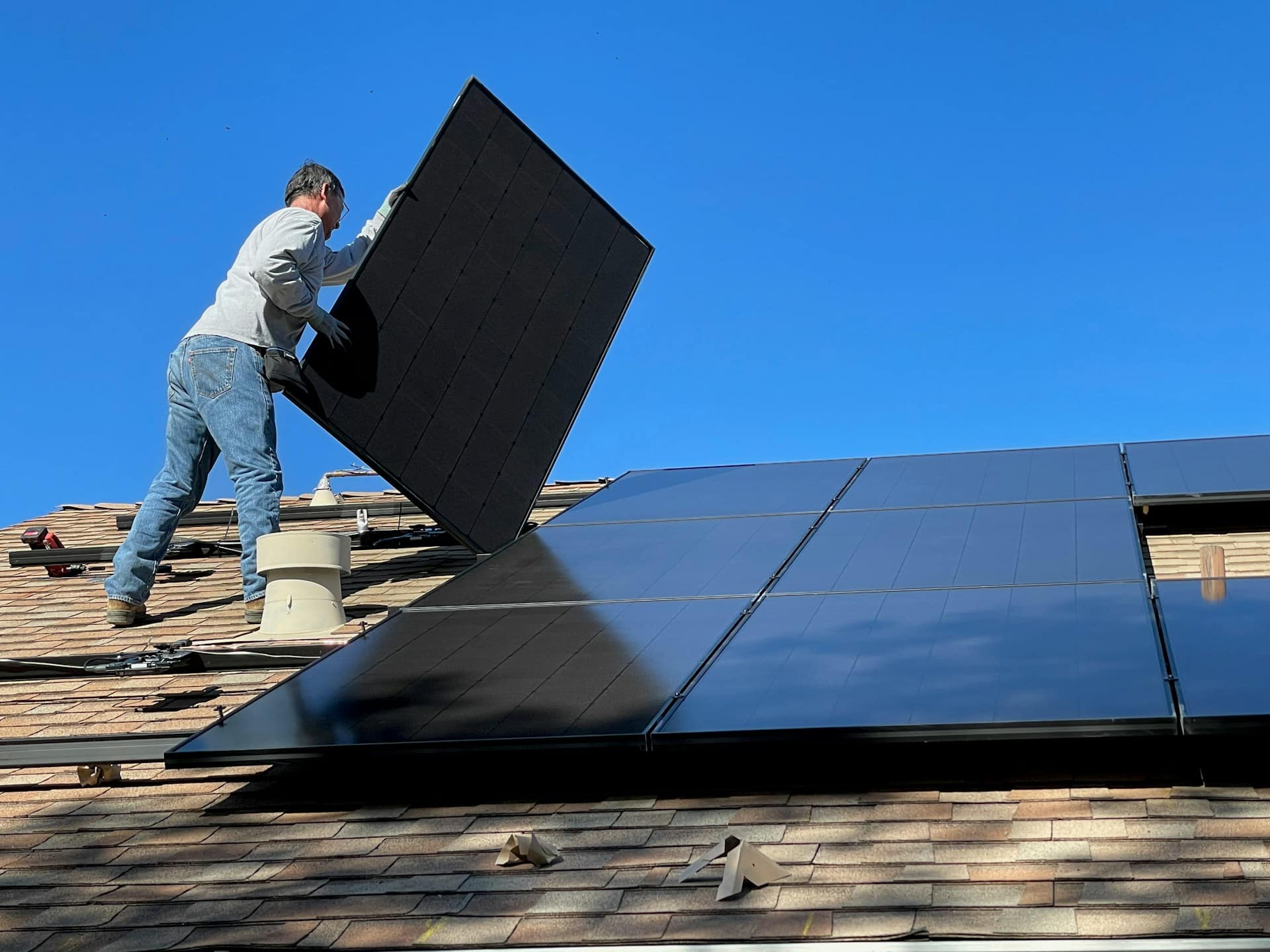This article may contain affiliate links. We may receive a commission for purchases made through these links. Privacy Policy.
For many homeowners, caring for their central air conditioning system isn’t really an everyday thought. It only comes around whenever something goes wrong — which means that once something does go wrong, you’re in for a lot of trouble.
Let’s paint a picture: Your AC unit breaks down, you have to call around to find a repair service that’s available as quickly as possible for the right price, you have to wilt in the heat until they come to the rescue… And, then, you get the bill.
Taking care of your AC unit before it breaks down and replacing or repairing it before worse comes to worst can help you avoid this nightmare of a situation.
Related: How To Pay For Costly Home Repairs [Without Going Broke]
How Often Do You Need to Replace An Air Conditioner?

There are a lot of different factors that can play into when you might need to replace your cooling system. Factors that could come into play include:
- How many hours each day you run your unit
- If there are any corrosive contaminants involved
- How often or well you care for your unit
- If you’ve made repairs in the past
More often than not, though, most air conditioning units will last for around 15 years, though sometimes as little as 10 and sometimes as much as 20.
Another factor that may cause your air conditioning unit to kick the bucket faster than, say, the unit at your sibling’s house across the country? The weather you get in your neck of the woods. Heat, saltwater, humidity and even proximity to agricultural production can impact how hard your unit needs to work and how fast you’ll need a new system.
Signs You Need to Replace Your Air Conditioner

Luckily, there are some signs that you can watch for, to avoid a surprise breakdown and replace your air conditioner before you run into major trouble.
1. Increased Energy Bills
If you’ve been noticing a sudden increase in your energy bills — that aren’t related to changing weather that might require you to run your AC unit more often — then it might be a sign that you need a new air conditioner.
High energy bills could mean your air conditioner is working harder to accomplish the same goal, or malfunctioning in some way.
If your energy bills are consistently more than usual over the course of a few months, it’s worth scheduling a check-up for your AC unit, to determine if you need to replace it sooner rather than later.
2. Outdated Models
As of this year (2020), air conditioners produced in the United States no longer use freon, or R-22 Freon, a refrigerant. The substance just isn’t going to be produced any longer, due to environmental hazards.
If you have an air conditioning unit that’s older than a decade, then it likely does use R-22 Freon. This means that if your air conditioner breaks down or runs out of freon, there won’t be any available to refill or repair it. You’ll simply need to buy a new unit.
If you know your unit uses R-22 Freon and that your unit is nearing the end of its lifespan, you may want to go ahead and purchase a new one, so you avoid any long waits on hot days to get a new unit installed at an inopportune time.
3. Increased Inconveniences
Have you noticed that the more you use your air conditioner, the more dust piles up in your house? Or maybe that your blower has become excessively noisy?
If so, it may mean that you have some problems with your air conditioning system, either there are leaks in the ductwork, or that you don’t have a suitable set up for the size of your home. This could lead to needed costly repairs down the road, as well as increased cooling costs.
Consistent problems like these are a good sign that it’s worth looking into ac replacement.
4. Inability to Cool or Remove Humidity
Your air conditioner provides cool air and removes humidity from your home’s interior. But if your air conditioner needs some repairs or is losing its effectiveness, you could notice that it’s not really able to do either job very well. Similarly, it could be able to do either fine, just not on a regular basis.
While you may think that you can withstand a little bit of humidity here and there to save on the cost of replacing your entire unit, you may want to think again. Leaving these types of problems to fester only means excessive energy bills and costly repairs in the future. A replacement, while requiring more cash upfront, can save you money in the long run.
5. Odd Leaking
If you’ve ever walked outside and found some odd or excessive moisture or puddles around your air conditioning unit, it’s time to get that looked at, stat. Not only can that leaking liquid pose a threat to the environment and to any person or pet that’s around it, but it can also cause damage to your home and furnishings. Even if the liquid isn’t a toxic coolant, if it’s just water, it can still cause mold issues.
Related: What Is A Home Warranty? [And Other FAQs – Answered!]
Should You Repair or Replace Your Air Conditioner?

You don’t always need to replace your air conditioner completely. Sometimes you can make a repair and be set up for another ten years of usage. If you’re considering whether to replace or repair, you’ll want to consider a few factors:
- The age of the unit (if it’s under 10 years in age, you could likely repair it; if it’s over 10 years, consider replacing)
- The frequency of your problems (Are you making more repairs every few years? It may be more cost-effective to go with a replacement)
- The cost of the repairs (If the price is going to be over half of the cost of a replacement, you probably want to go ahead and just buy a new unit)
Contact your local AC or HVAC repair professional for information on repair possibilities or consult with a licensed installer for replacement costs. Especially in the cases of older, freon containing units, DIY repair is not advised.
Benefits of Replacing Your Air Conditioner

If you still are having a difficult time putting down the money for a new unit, just remember that replacing your air conditioner comes with a range of other benefits. You increase the energy efficiency of your home, cut down on utility bills, improve indoor air quality, increase your home’s market value and, in some cases, even score a tax credit.
Don’t find yourself stranded on a sweltering summer day with no cold air and an emergency AC repair on your hands. If your current system shows any signs noted above, it’s time to start considering your plan for air conditioner replacement.
You may also be interested in: How Often Should You Replace Your Kitchen Appliances?
Holly Riddle
view postHolly Riddle
Holly Riddle is a travel, food and lifestyle writer, and a full-time freelance content creator after several years on editorial staffs for a multitude of publications ranging in topic and audience demographic. She currently acts as the editor at large for Global Traveler magazine and is a regular contributor at Trazee Travel, WhereverFamily, TravelMag, CruiseHive and more. Ghostwritten work for travel clients has appeared on Forbes, Bloomberg, Inc. and other top publications. She also manages blogs for tour providers, hotels and tourism boards.
view post





